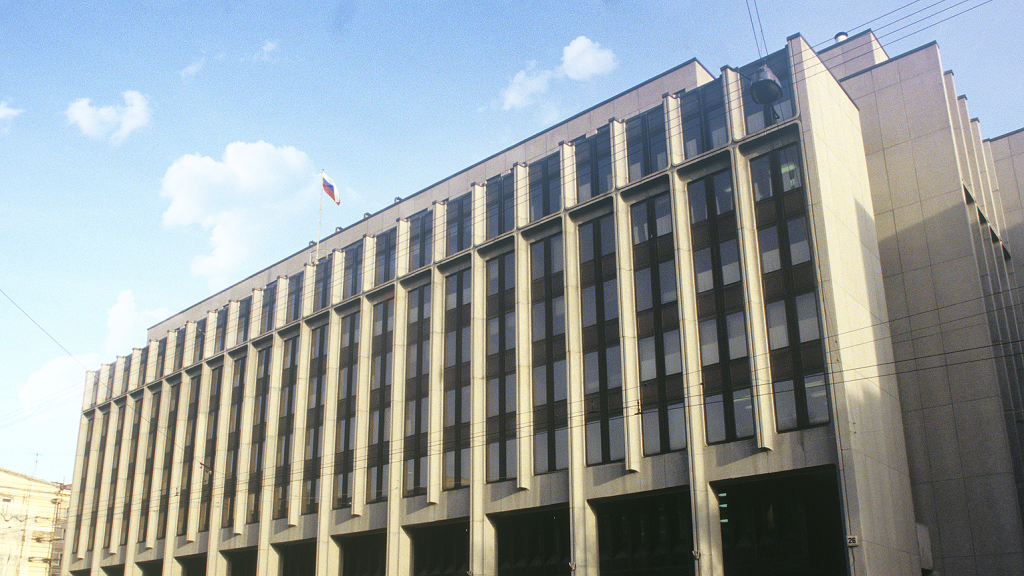Address by the Federation Council of the Federal Assembly of the Russian Federation to international parliamentary organisations, parliaments and the public of foreign states in connection with the increase in cases of violation of the right to use the native language
On the eve of Russian Language Day, which is marked in the Russian Federation annually on June 6 and is timed to coincide with the birthday of Alexander Pushkin, the Federation Council of the Federal Assembly of the Russian Federation, noting the importance of the Russian language for the development of international relations and intercultural dialogue, addresses international parliamentary organisations, parliaments and the public of foreign states with a call to respect and encourage the right of any person to use their native language, including to receive education in it.
The Federation Council of the Federal Assembly of the Russian Federation states that the Russian Federation, being a multi-ethnic and multi-faith state, has an invaluable tool for interethnic communication - the Russian language. It is recognised as one of the official and working languages at many international organisations, including the official language of the United Nations (UN). Millions of people around the world speak Russian. Alexander Pushkin, Fyodor Dostoevsky, Leo Tolstoy, Anton Chekhov and other great writers who belong not only to Russian, but also world culture, wrote in it.
In the Russian Federation, the right of any individual to use their native language, to freely choose their language of communication, education, training and creativity is guaranteed by the Constitution of the Russian Federation. In our country, 277 languages and dialects are used; 105 languages are used in the state education system, of which 24 are used as the language of instruction and 81 as an academic subject.
The native language is the core of national identity and self-awareness. Restricting the right to use it, including communication and receiving education in it, is a form of cultural genocide. It provokes ethnic conflicts, and in certain cases poses a threat to international security.
The right to use the native language is enshrined in many international documents in the field of the protection of fundamental human rights and freedoms, including the Convention of the United Nations Educational, Scientific and Cultural Organisation against Discrimination in Education of December 14, 1960, the International Covenant on Civil and Political Rights of December 16, 1966, the Convention on the Rights of the Child of November 20, 1989, the Final Act of the Conference on Security and Cooperation in Europe of August 1, 1975, the Declaration on the Rights of Persons Belonging to National or Ethnic, Religious and Linguistic Minorities adopted by the UN General Assembly on December 18, 1992, and others. The preamble to the Council of Europe Framework Convention for the Protection of National Minorities of February 1, 1995 states that “a pluralist and genuinely democratic society should not only respect the ethnic, cultural, linguistic and religious identity of each person belonging to a national minority, but also create appropriate conditions enabling them to express, preserve and develop this identity.”
The Federation Council of the Federal Assembly of the Russian Federation notes with concern that the right of people to communicate and to receive education in their native language is grossly violated in a number of states. In Latvia, Estonia and Ukraine, laws have been adopted and remain in force which are limiting people’s right to use their native language. Unfortunately, these facts do not evoke a proper response from European and international organisations, including non-governmental human rights organisations.
The developments in Ukraine in recent years directly stem from the desire, encouraged by the authorities, of radical nationalists and politicians who align with them to assert Ukrainian statehood by trampling on the legal rights of other ethnicities, primarily Russians, who are the indigenous people of that country.
Today, in a number of states, the denial of the right to use native language is often accompanied by the rewriting of history, the glorification of Nazism, Nazis and their accomplices.
The senators of the Russian Federation are convinced that in the face of modern challenges and threats, when old conflicts are aggravated and new conflicts arise, it is important to consolidate the efforts of the entire international community in order to normalise international relations. Strict observance by states of the right of any person to use their native language is an indispensable condition for this.
The Federation Council of the Federal Assembly of the Russian Federation calls on international parliamentary organisations, parliaments and the public of foreign states to uphold the right to use the native language and strongly condemn any attempts to violate it.
